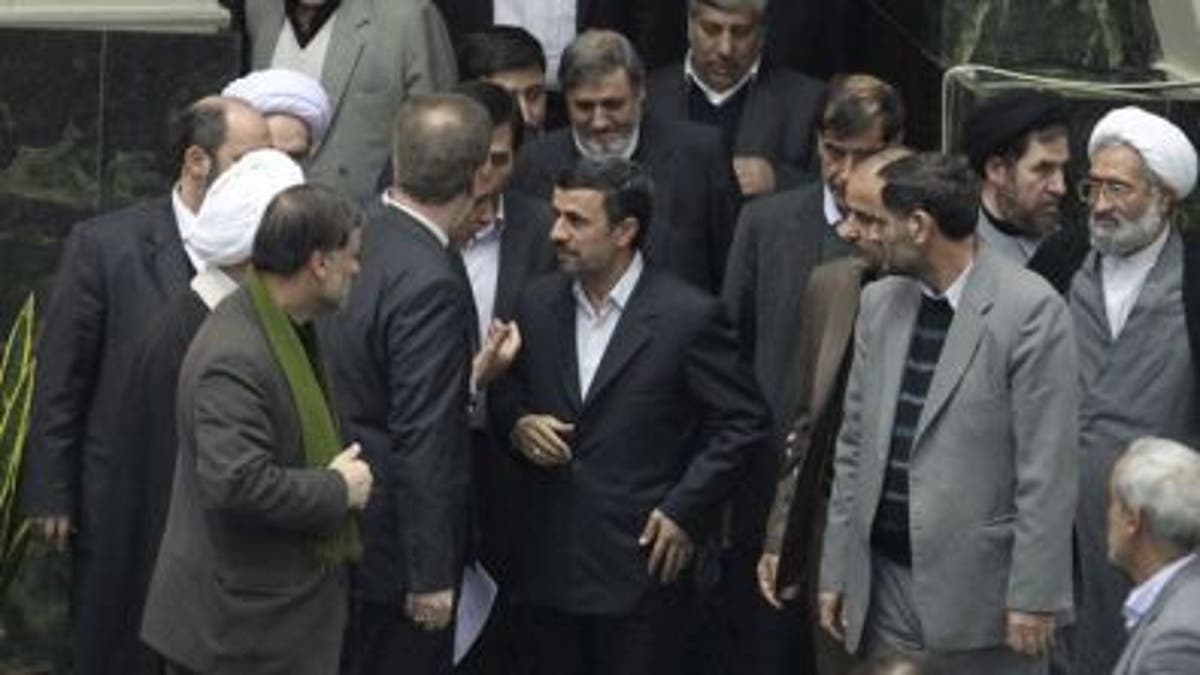
Feb. 1, 2012: In this photo released by the official website of the Iranian President's office, Iranian President Mahmoud Ahmadinejad, center, arrives at the parliament to deliver the new year's budget, as he is surrounded by lawmakers, in Tehran, Iran. (AP)
Internal divisions in Iran's government are hampering its effort to form a united front in the coming negotiations with the West over the Islamic Republic's nuclear program.
Analysts say that could make it harder for Iran's Supreme Leader, Ayatollah Ali Khamenei, to strike a compromise to avoid the appearance of weakness, as the West demands concessions to the program.
The talks between Iran and the five permanent members of the United Nations Security Council plus Germany are scheduled to take place in Istanbul on Saturday. The Western nations are expected to demand that Iran suspend or significantly reduce its uranium enrichment activities and give UN inspectors unlimited access to its nuclear sites.
"The international community is united, Iran is isolated, the way to change that dynamic is for Iran to live up to its international obligations and to forsake its nuclear weapons ambitions," White House press secretary Jay Carney said Wednesday.
In its negotiations with the West, Iran has long followed a strategy that its officials call the "grand policy" bargaining, meaning the country puts up a united front against the West and decisions on its nuclear program rise above petty domestic rivalries.
To read more on this story, see The Wall Street Journal article here.
